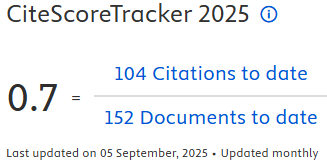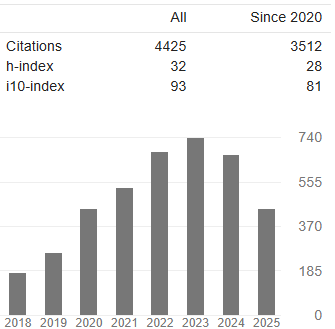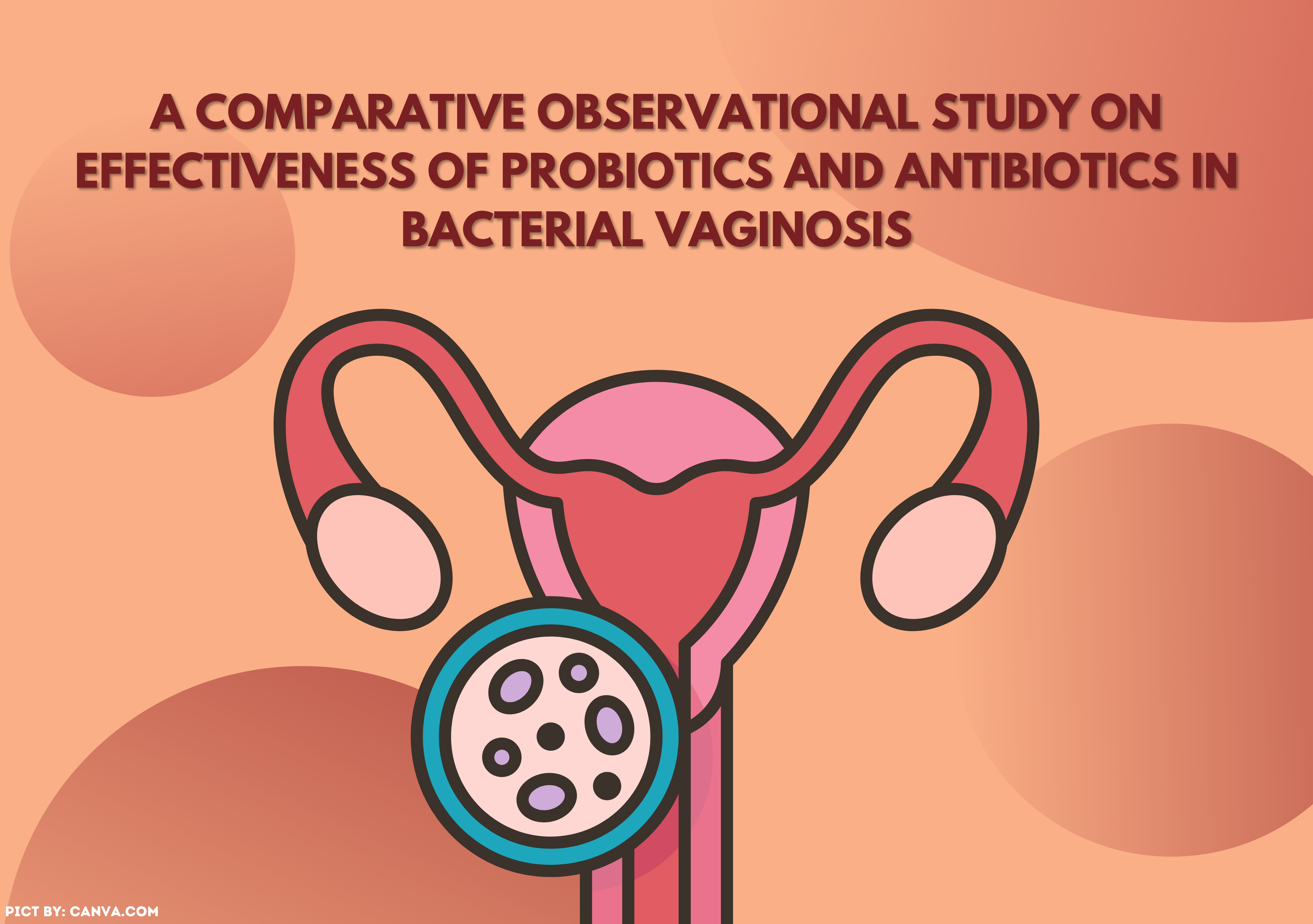CORRELATION OF PREDISPOSING, ENABLING, AND NEED FACTOR OF PROGRAM KELUARGA HARAPAN PARTICIPANTS TOWARD UTILIZING PRIMARY HEALTHCARE

Introduction: Program Keluarga Harapan (PKH) is a program aimed to reduce the vulnerability of the poor through conditional cash assistance for household need such as access to health and education services, immunization, and family nutrition fulfillment. PKH participants are given health insurance (KIS) facility, especially in Penerima Bantuan Iuran (PBI), to access health services. Total PBI participants in 2019 reached 28.81% with healthcare utilization only 13.34%. Preliminary studies showed that not all PKH participants have KIS and use health services. The aim of the study is to find out the correlation of predisposing, enabling, and need factors of PKH participants in the Thematic Village toward utilizing health services in Kendalkerep Primary Healthcare. Methods: This study is an analytic-observational study and cross-sectional approach with subjects all of PKH participants in Kampoeng Lampion Wangi, Kampung Warna Warni Jodipan, and Kampung Tridi. Data are analyzed by logistic regression and correlational test. Result: Results of analysis show that there is significant correlations of predisposing factor such as education (β = 1.689), employment status (β = 1.466); enabling factor such as health insurance (β = 3.045), access to healthcare (β = 2.819); and need is a perception of illness (β = 2.767) toward Kendalkerep Primary Healthcare by PKH Thematic Village participants. Conclusion: Based on Nagelkerke determination coefficient, health insurance and access is a dominant factor which affects the utilization Kendalkerep Primary Healthcare of 46% with correlational strength fair and correlational direction positive.
Alhamda, S. 2014. Buku Ajar Sosiologi Kesehatan. Yogyakarta: Deepublish Publisher.
Andersen, R. M. 2005. Societal and Individual Determinants of Medical Care Utilization in The United States. Milbank Quarterly, 83(4): 1–28. https://doi.org/10.1111/j.1468-0009.2005.00428.x
Başar, D., Öztürk, S. & Cakmak, Ä°. 2018. An Application of The Behavioral Model to The Utilization of Health Care Services in Turkey: A Focus on Equity, In Panoeconomicus. https://doi.org/10.2298/PAN171121006B
Bird, C. E., Shugarman, L. R. & Lynn, J. 2002. Age and Gender Differences in Health Care Utilization and Spending for Medicare Beneficiaries in Their Last Years of Life. Journal of Palliative Medicine, 5(5): 705–712. https://doi.org/10.1089/109662102320880525
Central Bureau of Statistics. 2016. Number of Poor People by Province, 2007-2019.
Central Bureau of Statistics of Malang City. 2019. Poverty Profile in The Malang City in 2019. Malang: Central Bureau of Statistics of Malang City.
Central Bureau of Statistics of Malang City. 2020. Malang Municipality in Figures 2020. Malang: Central Bureau of Statistics of Malang City.
Directorate General of Creation of The Ministry of Public Works. 2016. Slum Settlements and Efforts to Overcome The Slum Settlements.
Djunawan, A. 2019. Benarkah Subsidi Jaminan Kesehatan Meningkatkan Pemanfaatan Pelayanan Kesehatan Primer Oleh Penduduk Miskin Perkotaan. Jurnal Kebijakan Kesehatan Indonesia, 8(1): 18–24. DOI: 10.22146/JKKI.41833
Fajar, M. 2017. Pemodelan Kurva Engel Sederhana Indonesia (Pendekatan Bayesian Quantile Regression). E-Prosiding Nasional: Seminar Nasional Statistika Departemen Statistika FMIPA Unpad, 6(1): 1–11. DOI: 10.13140/RG.2.2.18260.91552
Fatimah, S. & Indrawati, F. 2019. Faktor Pemanfaatan Pelayanan Kesehatan di Puskesmas. Higeia Journal of Public Health Research and Development, 3(1): 84–94. DOI: 10.15294/higeia/v3i1/24747
Girma, F., Jira, C. & Girma, B. 2011. Health Services Utilization and Associated Factors in Jimma Zone, South West Ethiopia. Ethiopian Journal of Health Sciences, 21(Special Issue): 85–94.
Hidana, R., Shaputra, R. & Maryati, H. 2018. Faktor-Faktor yang Berhubungan dengan Pemanfaatan Pelayanan Kesehatan oleh Pasien Luar Wilayah di Puskesmas Tanah Sareal Kota Bogor Tahun 2018. Promotor: Jurnal Mahasiswa Kesehatan Masyarakat, 1(2): 105–115.
Irawan, B. & Ainy, A. 2018. Analisis Faktor-Faktor yang Berhubungan dengan Pemanfaatan Pelayanan Kesehatan Pada Peserta Jaminan Kesehatan Nasional di Wilayah Kerja Puskesmas Payakabung, Kabupaten Ogan Ilir. Jurnal Ilmu Kesehatan Masyarakat, 9(3): 189–197. https://doi.org/10.26553/jikm.v9i3.311
Kuuire, V. Z. et al. 2015. Health-Seeking Behaviour During Times of Illness: A Study Among Adults in a Resource Poor Setting in Ghana. Journal of Public Health, 38(4): e545–e553. https://doi.org/10.1093/pubmed/fdv176
Logen, Y., Balqis, B. & Darmawansyah, D. 2015. Faktor yang Berhubungan dengan Pemanfaatan Pelayanan Kesehatan Oleh Pemulung di TPA Tamangapa. Jurnal Universitas Hasanuddin, 1–12.
Marnah, M., Husaini, H. & Ilmi, B. 2016. Analisis Perilaku Masyarakat dalam Pemanfaatan Pelayanan Kesehatan Peserta Program Keluarga Harapan (PKH) di Kecamatan Paminggir. Jurnal Berkala Kesehatan, 1(2): 130–138. https://doi.org/10.20527/jbk.v1i2.3152
Masita, A., Yuniar, N. & Lisnawaty, L. 2016. Faktor-Faktor yang Berhubungan dengan Pemanfaatan Pelayanan Kesehatan Pada Masyarakat Desa Tanailandu di Wilayah Kerja Puskesmas Kanapa-Napa Kecamatan Mawasangka Kabupaten Buton Tengah Tahun 2015. Jurnal Ilmiah Mahasiswa Kesehatan Masyarakat Unsyiah, 1(3): 1–7. DOI: 10.37887/jimkesmas.v1i3.1246
Mujiati & Yuniar, Y. 2016. Ketersediaan Sumber Daya Manusia Kesehatan Pada Fasilitas Kesehatan Tingkat Pertama dalam Era Jaminan Kesehatan Nasional di Delapan Kabupaten-Kota di Indonesia. Media Litbangkes, 26(4): 201–210. https://doi.org/10.22435/mpk.v26i4.4827.201-210
Napirah, M. R., Rahman, A. & Tony, A. 2016. Faktor-Faktor yang Berhubungan dengan Pemanfaatan Pelayanan Kesehatan di Wilayah Kerja Puskesmas Tambarana Kecamatan Poso Pesisir Utara Kabupaten Poso. Jurnal Pengembangan Kota, 4(1): 29–39. https://doi.org/10.14710/jpk.4.1.29-39
Noviani, A. & Agustina, D. N. 2019. Profil Statistik Kesehatan 2019. In B. Santoso, S. P. Astuti, & S. H. Ponco (Eds.), Central Bureau of Statistics. Jakarta: Central Bureau of Statistics. DOI: 4201005
Purbantari, A. D., Roesdiyanto, R. & Ulfah, N. H. 2019. Hubungan Pendidikan, Akses Pelayanan Kesehatan dan Dukungan Keluarga Dengan Pemanfaatan Pelayanan Kesehatan Penderita TB Paru BTA+ di Puskesmas Janti Kota Malang. Preventia : The Indonesian Journal of Public Health, 4(1): 1–14. https://doi.org/10.17977/um044v4i1p1-14
Rabbaniyah, F. & Nadjib, M. 2019. Analisis Sosial Ekonomi dalam Pemanfaatan Fasilitas Kesehatan untuk Berobat Jalan di Provinsi Jawa Barat: Analisis Data Susenas Tahun 2017. Media Kesehatan Masyarakat Indonesia, 15(1): 73–80. https://doi.org/10.30597/mkmi.v15i1.5888
Siyoto, S. 2012. Model-Model Perilaku Kesehatan Keluarga Penerima Jamkesmas. STRADA Jurnal Ilmu Kesehatan, 1(2): 86–102.
Sutter, M. E. 2017. An Integrated Behavioral Model of Healthcare Utilization among Transgender and Gender-Nonconforming Adults,
World Health Organization (WHO). 2019. Conditional Cash Transfer Programmes and Nutritional Status. (Online).
Wulandari, P. K. 2017. Inovasi Pemuda dalam Mendukung Ketahanan Ekonomi Keluarga (Studi Kasus Pada Kampung Warna-Warni Kelurahan Jodipan, Kecamatan Blimbing, Kota Malang). Jurnal Ketahanan Nasional, 23(3): 300–319. https://doi.org/10.22146/jkn.28829
Copyright (c) 2023 The Indonesian Journal of Public Health

This work is licensed under a Creative Commons Attribution-NonCommercial-ShareAlike 4.0 International License.
- The authors agree to transfer the transfer copyright of the article to The Indonesian Journal of Public Health effective if and when the paper is accepted for publication.
- Authors and other parties are bound to the Creative Commons Attribution-NonCommercial-ShareAlike 4.0 International License for the published articles, legal formal aspect of journal publication accessibility refers to Creative Commons Attribution-NonCommercial-ShareAlike 4.0 International License (CC BY-NC-SA), implies that:
- Attribution ” You must give appropriate credit, provide a link to the license, and indicate if changes were made. You may do so in any reasonable manner, but not in any way that suggests the licensor endorses you or your use.
- NonCommercial ” You may not use the material for commercial purposes.
- ShareAlike ” If you remix, transform, or build upon the material, you must distribute your contributions under the same license as the original.































